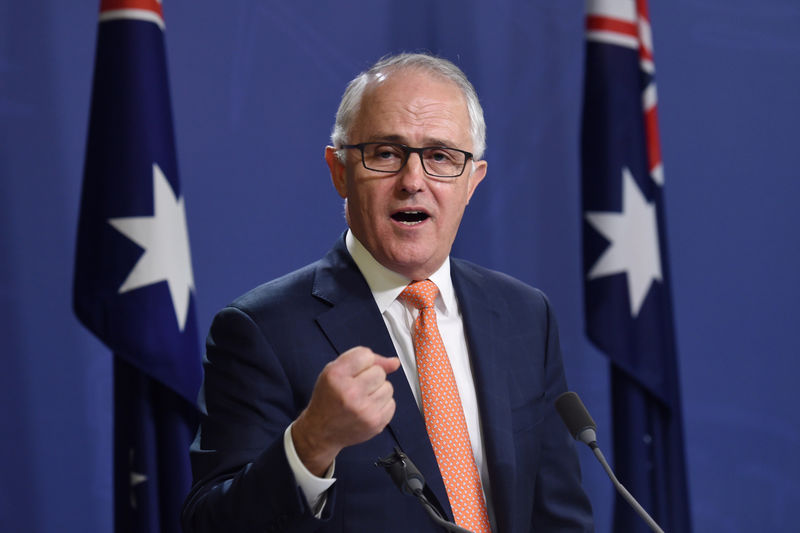Street Calls of the Week
By Colin Packham
SYDNEY, Feb 8 (Reuters) - Australia's will amend its proposed new laws designed to prevent further meddling from China in its domestic politics to offer protections to journalists amid concerns that reporters could be imprisoned for receiving classified information.
Australian Prime Minister Malcolm Turnbull in December said Beijing was improperly interfering in Canberra's affairs and the government would introduce a suite of new laws modelled on the U.S. Foreign Agents Registration Act. about potential foreign inference similar to the
Wikileaks' publication of illegally obtained emails from the U.S. Democratic Party and the personal email account of John Podesta, Hillary Clinton's 2016 presidential campaign chairman, Australia's included tough provisions of the activities of journalists.
Under the original proposal, journalists could be jailed if they took procession of classified documents, prompting a strong backlash from Australia's media industry that has forced the government to offer an amendment.
"There is not any plan by the government to see journalists going to jail simply for receiving documents and that would not occur under this bill as currently drafted," Australia's Attorney-General Christian Porter told ABC Radio.
Under the proposed amendments, journalists would now only be prosecuted if they publish classified information that "endangered public safety or jeopardise national security".
The concessions will also improve the chances of the proposed laws winning sufficient support from Australian lawmakers.
While the government has a majority in Australia's lower house, it does not control the country's senate and the main opposition Labor Party has already said it would oppose the original legislation.
Labor on Thursday said it has yet to decide whether it would support the new legislative proposal.
But the amendment will do little to improve Australia's relationship with China, the country's largest trading partner, which have soured in recent months on the back of Turnbull's allegations of improper meddling from Beijing.
China took the unusual step in December of summoning Australia's ambassador to lodge a complaint against Canberra's allegation that Beijing had sought to interfere in Australian politics.
